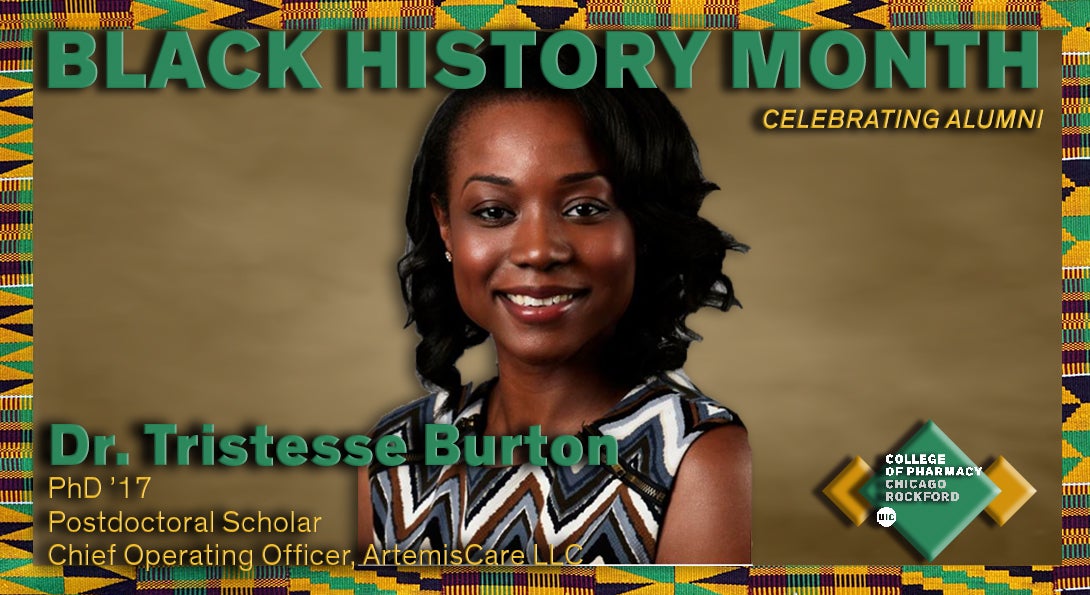Black History Month Profile: Dr. Tristesse Burton

Introduction
Today we feature Tristesse Burton, PhD ’17, who is currently a Postdoctoral Scholar at the University of Nevada, Las Vegas and COO of ArtemisCare, LLC. Since her youth, Dr. Burton has always had a love for science, which was inspired by Dr. Percy Lavon Julian – an African American natural products chemist who developed a glaucoma treatment from an African-native plant, the Calabar bean.
Her excitement for and early exposure to plant science led her to pursue an undergraduate degree in Crop Sciences with a minor in Chemistry from the University of Illinois at Urbana-Champaign. Her undergraduate research project, which focused on how soybean plants responded to stress, helped her discover the study of Pharmacognosy.
“I will never forget this: I read a sign on the CTA one day that Northwestern University was recruiting women researchers to study soybeans for its effects on menopause. I couldn’t believe that they were using the plant that I based my undergraduate research on to study menopause.” After participating in their summer research program, she knew she wanted to use her passion for plants and apply it to humans (ethnobotany).
“I chose UIC College of Pharmacy because their PhD program was rooted in Pharmacognosy and had once housed renowned research pioneers, like Norman Farnsworth. There were so many researchers I wanted to work with.”
Dr. Burton explains how ethnobotany is culturally instilled in African Americans. “We as African Americans have a strong history of self-preservation and survival by using the things that we have in front of us. Plants that are the base of African American cuisine, like collard greens, sweet potato, black-eyed peas, are rooted in African cuisine and all have medicinal properties.”
For students who want to study Pharmacognosy and Pharmaceutical Sciences, Dr. Burton advises that they follow the words of Marcus Garvey and “Take advantage of every opportunity; where there is none, make it for yourself, and let history record that as we toiled laboriously and courageously, we worked to live gloriously.”
Thank you for the great work that you do, Dr. Burton!